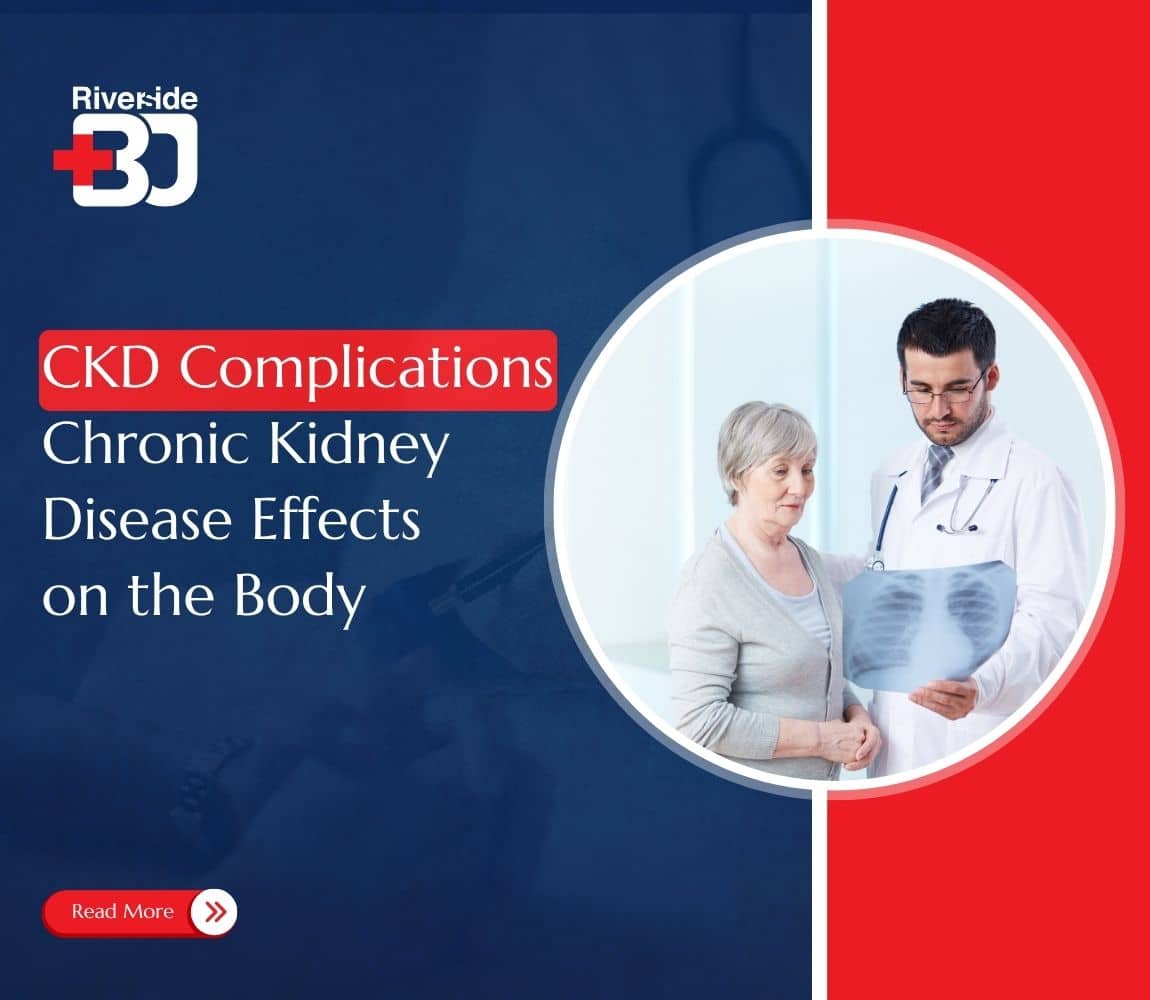Living with complications from CKD or Chronic Kidney Disease can feel like fighting an invisible battle. CKD often develops quietly. However, over time, it can lead to serious problems such as heart disease, anaemia, nerve damage, and bone disorders.
According to the National Kidney Foundation, CKD affects around 10% of the global population, and millions die each year because they do not have access to affordable treatment. Hence, it is a major public health concern.
These complications of chronic renal failure aren’t just medical terms, they’re real issues that can impact day-to-day life. From complications in dialysis patients to diabetic neuropathy complications, the effects can be far-reaching if left unmanaged.
What are the key complications of CKD, and how they develop, and how can we manage them effectively? Let’s begin by understanding what CKD is and why it can be so dangerous over time.
About Chronic Kidney Disease (CKD)

Chronic kidney disease, or CKD, means your kidneys are slowly losing their ability to work properly. It’s a long-term condition that builds over months or years and can lead to serious health issues.
Subsequently, the complications from CKD emerge over time and can affect many parts of your body.
In fact, as per the International Society of Nephrology, the prevalence of CKD worldwide is 10.4% among men and 11.8% among women. Hence, this translates into hundreds of millions of lives altered by complications from chronic renal failure.
Furthermore, CKD often grows quietly, with few symptoms at first. Over time, the complications of renal failure may include high blood pressure, anaemia and bone problems. Early stages might feel invisible, yet later stages bring symptoms like tiredness, swelling or loss of appetite.
Signs and Symptoms of CKD
Spotting the complications of CKD early can make a big difference. Let’s understand what hints your body gives, even subtle ones, before more serious complications of chronic renal failure emerge.
Recognising signs can help manage the complications of CKD sooner. In advanced cases, the symptoms may even overlap with certain conditions in the classification of neurological disorders, such as nerve damage or cognitive changes.
Here are some key symptoms to watch for:
- To begin with, foamy or bubbly urine may suggest protein leakage from the kidneys. Hence, it hints at early complications of renal failure.
- Subsequently, swelling in the ankles, feet or around the eyes could signal fluid retention, a hallmark of advancing CKD.
- Next, persistent fatigue and weakness often reflect anaemia or build-up of toxins, both part of CKD risks.
- Itchy, dry skin or changes in skin tone may arise from waste accumulation affecting nerve and skin function.
- Lastly, nausea or reduced appetite can indicate toxin overload when the kidneys no longer clear metabolic wastes effectively.
Although these signs may feel mild at first, they matter. Therefore, recognising them early can reduce dialysis patients’ complications and diabetic neuropathy complications. Ultimately, being alert today can help prevent more serious outcomes tomorrow.
Causes of CKD
Understanding the causes of CKD helps demystify why CKD develops. Known triggers like high blood pressure and diabetes are key. However, many may not realise that lifestyle or environment can also drive complications of chronic kidney disease.
All of these influence complications of CKD later. Discussing these causes also opens the door to exploring effective strategies for kidney health that may help slow disease progression.
Here are the common causes:
- To start with, diabetes, particularly poorly controlled blood sugar levels, damages kidney vessels and leads to complications of CKD.
- Next, high blood pressure, over time, harms delicate kidney filters. Further, accelerating damage and renal failure risks.
- Additionally, Glomerulonephritis, an inflammatory kidney condition, directly impairs kidney function and may progress to CKD.
- Moreover, obesity, older age, smoking or family history also raise CKD risk and compound the complications of renal failure.
- Lastly, the less common causes include genetic disorders like polycystic kidney disease or long-term toxin exposure, sometimes with unclear origins.
Only a few causes explain most CKD cases, yet lesser-known ones matter too. Early awareness of complications of chronic renal failure, by knowing risks, can guide timely interventions and reduce complications in dialysis patients down the line.
Complications of CKD

Living with complications of CKD can have widespread effects on the body. The kidney’s declining function triggers chain reactions in other organs, sometimes without early warning signs. This is why recognising the symptoms matters so much.
Furthermore, these issues are not isolated. They often overlap and compound the complications of CKD.
With that in mind, let’s explore each of the major complications in detail.
1) Cardiovascular Complications
As per PubMed Central, cardiovascular disease is the leading cause of death in CKD patients.
Reduced kidney function increases blood pressure and arterial damage. Additionally, complications of renal failure promote fluid overload, which strains the heart.
Over time, this leads to heart attacks, arrhythmias, and strokes, especially when other risk factors like diabetes or obesity exist.
2) Anaemia and Fatigue
Complications of CKD limit the kidneys’ production of erythropoietin, a hormone vital for red blood cell formation. Consequently, patients may experience persistent tiredness, weakness, and shortness of breath.
Anaemia is one of the most common complications resulting from chronic renal failure. Further, it directly impacts daily activities and mental clarity while worsening heart problems over time.
3) Electrolyte Imbalances and Bone Disorders
As kidney function declines, the balance of minerals like calcium and phosphorus is disrupted. This imbalance often causes bone weakness, fractures, and muscle cramps.
Moreover, such changes form a core part of the complications of CKD. Thus, it affects movement, posture and increases the risk of bone fractures in elderly patients.
4) Fluid Retention and Swelling
Damaged kidneys cannot remove the excess water effectively. This leads to swelling in the feet, ankles, and hands. Additionally, complications in dialysis patients may worsen fluid build-up between sessions.
In severe cases, fluid collects in the lungs, making breathing difficult and increases the risk of heart failure.
5) Complications of Chronic Renal Failure
In the later stages, toxins build up in the bloodstream, thus affecting the brain, heart, and the immune system. This stage includes severe complications of chronic renal failure, such as pericarditis, seizures, and extreme weakness.
Such complications require immediate medical attention to prevent irreversible organ damage and further decline.
6) Dialysis-Related Complications
While dialysis is life-saving, it brings its risks. Patients may face complications identified with dialysis patients like low blood pressure, muscle cramps, or bloodstream infections.
Furthermore, repeated access site infections can impair success of long-term treatment. This requires changes to dialysis methods or frequency.
7) Diabetic Neuropathy and Nerve Damage
Uncontrolled diabetes in CKD can damage nerves throughout the body. Symptoms include numbness, tingling, or burning sensations, especially in the feet and hands.
This condition, among the complications seen in diabetic neuropathy, increases risks of injury as patients may not feel pain from cuts or sores.
8) Skin and Digestive Issues
The build-up of waste can cause dryness of the skin, persistent itching, and colour changes. Digestive problems like nausea, vomiting, or a metallic taste in the mouth may also occur.
Additionally, such symptoms contribute to the complications of chronic kidney disease that affect both comfort and nutritional status.
While the complications of CKD can feel overwhelming, early interventions can change the outcomes. Ultimately, understanding these risks help patients to work closely with doctors, slow the progression of the disease, and protect the quality of life for years to come.
Conclusion
The complications from CKD can impact far more than just the kidneys, often affecting the heart, nerves, bones, and overall well-being.
From complications of chronic renal failure like anaemia and heart disease to dialysis patient complications, each risk needs early attention.
Understanding how these problems develop gives you the power to take preventive steps. Managing blood pressure, controlling diabetes, and getting regular medical check-ups are key to slowing disease progression.
Remember, spotting the complications of CKD early can make treatment more effective and improve the quality of life.
At Riverside B&J Hospital, we combine advanced diagnostics with compassionate care for kidney and heart health. If you’re looking for a kidney specialist in Mumbai, Speak to our specialists, get the right treatment plan, and protect your future health, because every step towards prevention counts.
Contact Us today!
FAQs
- What are the most common complications of CKD?
The most common complications of CKD include heart disease, anaemia, bone disorders, fluid retention, and nerve damage. All of these can worsen over time without treatment.
- Can CKD lead to neurological problems?
Yes, advanced complications from CKD can cause neurological problems like confusion, seizures, and nerve damage. This is due to toxin build-up that affects the brain and nerve functions.
- How does diabetes worsen CKD complications?
Diabetes damages the blood vessels in the kidneys. Further, accelerating the complications of CKD, such as nerve damage, heart disease, and fluid retention, particularly in uncontrolled or long-term diabetic cases.
- What are the complications faced by dialysis patients?
Dialysis patients often face complications from CKD that include low blood pressure, cramps, infections, and fatigue, especially when treatments are prolonged or the access sites become infected.
- Can CKD complications be managed or reversed?
While most complications from CKD cannot be fully reversed, early detection and proper treatment can slow progression, improve the quality of life, and reduce serious health risks.

